‘No one tells you how to do this type of work. You learn from your colleagues at home and from your exchanges with colleagues in different jurisdictions.’
– Louis Snyman, Centre for Applied Legal Studies, South Africa
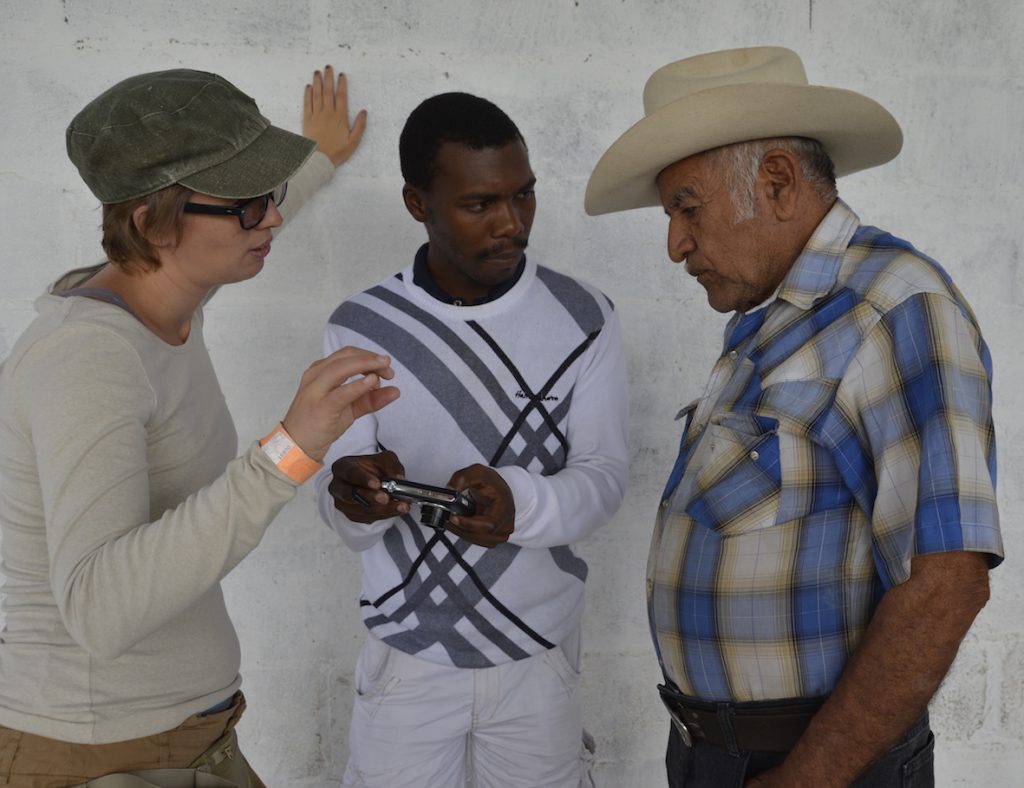
The Bertha Foundation created an educational exchange fund to support comparative learning and experience sharing amongst the lawyers in the Bertha Justice Initiative network. In his opening remarks at an educational exchange in Mexico on community protection strategies against abusive mining practices, Louis Snyman highlighted the value and importance of opportunities for exchange.
Since the fund was created, exchanges have been organised by our partners, bringing together lawyers from around the world to discuss common work themes and practice. Exchanges have focused on the issues faced by women lawyers in the human rights sector, the shrinking space for civil society in South Africa, community engagement strategies around mining in Colombia, Europe, India, Mexico, Myanmar, South Africa and the United States, lawyer and community empowerment training models in Colombia and Thailand – and soon, on transnational pesticide litigation, particularly abusive company practices in India. The exchanges have enriched participants’ understanding of the field and their own work, cultivated relationships for cross-jurisdictional collaboration and helped to build a sense of identity and solidarity within the Bertha Justice Initiative network.
Our first exchange was hosted by the European Center for Constitutional and Human Rights (ECCHR) in Berlin and brought together women from the Bertha network for leadership and empowerment training, and the opportunity to workshop together the issues faced by women lawyers in the public interest sector. This exchange led to the production of a film, which has since been used in universities and bar association events, and a publication in which women lawyers were able to “deconstruct the strict parameters of their profession to build a personal and multi-layered approach that explains their political vision and why they do the work they do.” It also led to the creation of the Women’s Working Group, women lawyers from around the world working together to promote and support each other within the Bertha network. Since then, Bertha has supported a permanent role for an alumna from our fellows program: the position will be housed in a different Bertha Justice Initiative organisation on a rolling 18 month basis and will serve to coordinate the Women’s Working Group, as well as to engage and support women lawyers in the Bertha network.
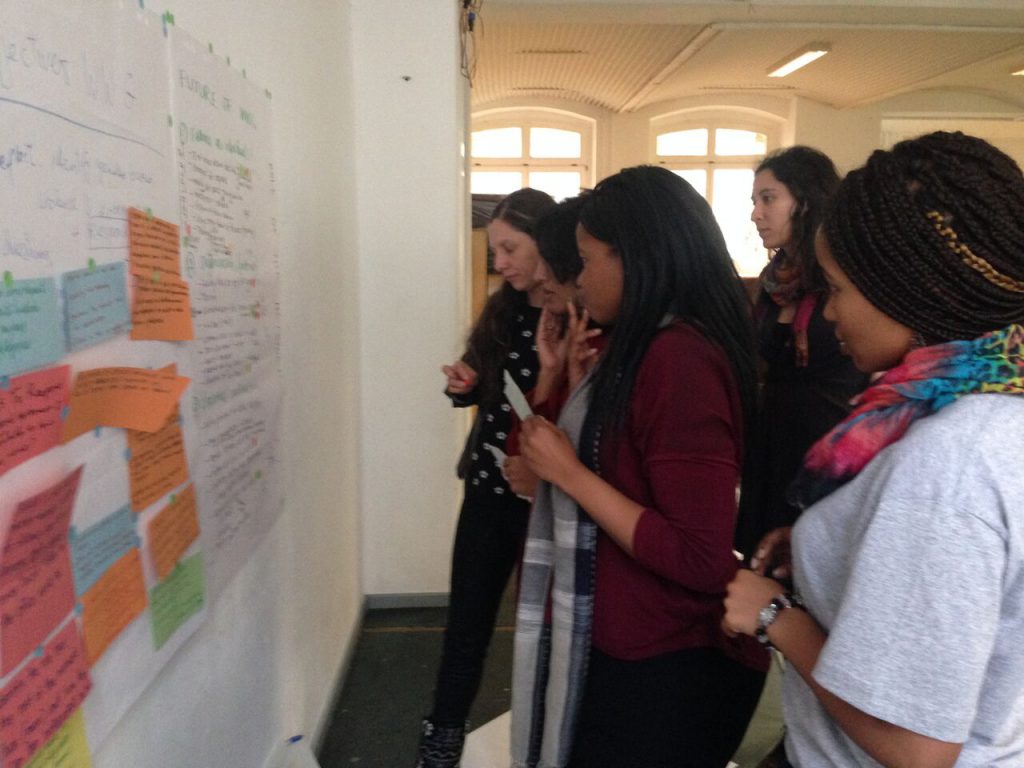
The next exchange was hosted by ProDESC in Mexico and brought together lawyers to share strategies in defending community rights to land, territory and natural resources against abusive practices of multinational corporations. Over six days, Bertha Fellows and partner lawyers from South Africa, India, Colombia, Myanmar, the US and Germany shared legal strategies and learned from each other’s work. Both experienced lawyers and Bertha Fellows commented on the striking similarities in the issues they faced in different parts of the world and the benefits of personal interaction and connection, which provided inspiration and a sense of solidarity that would help to sustain them in this difficult work challenging powerful state and corporate structures.
‘The educational exchange was an incredible space – I had the opportunity to be surrounded by an amazing community of lawyers who recognize both the law’s limitations and it’s possibilities and who use every tool available to them to challenge systems of oppression and inequality. Every moment of the exchange provided me new insights – whether we were challenging narratives of power and empowerment or debating state responsibility and corporate accountability.’
– Marissa Vahlsing, EarthRights International, United States
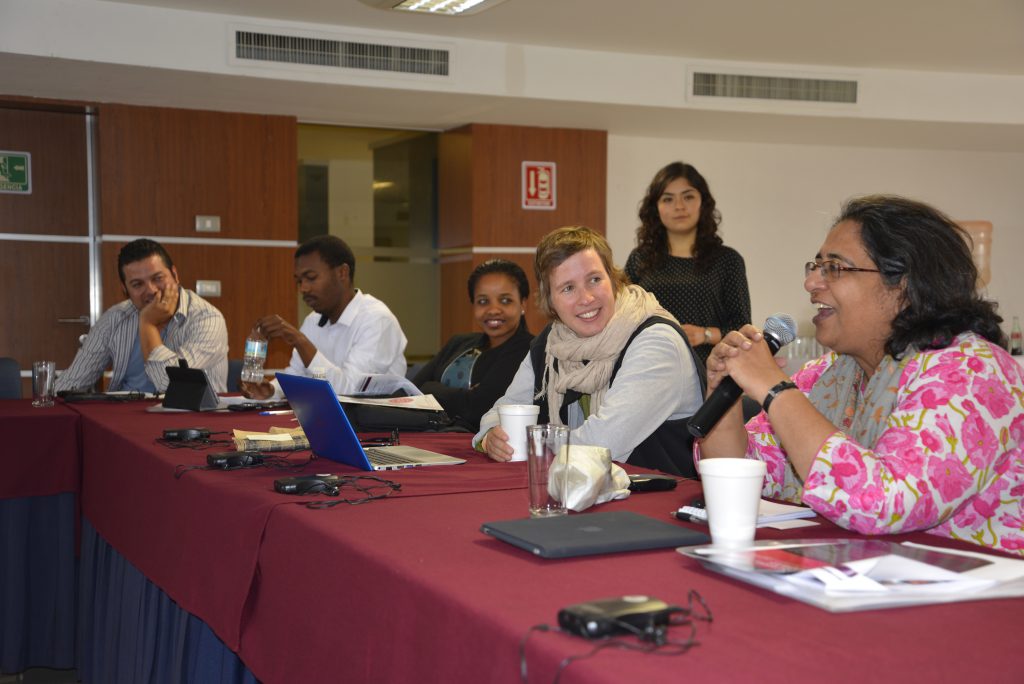
Bertha Fellows, who in many cases had never travelled abroad before, gained a new global perspective through the opportunity to meet and learn from experienced lawyers who use the law creatively to empower the most vulnerable people in their home jurisdictions. Participants shared their work in an environment of equality and solidarity, which provided inspiration for experienced and junior lawyers alike.
‘It’s so important to see, as a young lawyer, that it’s not naive of me to think that I can change the world. These exchanges expose me to more senior people who still think we can take on power.’
– Palesa Madi, Bertha Fellow at the Center for Applied Legal Studies (CALS), South Africa
‘This experience opened up young people’s minds and encouraged and inspired them to continue in this work. But it also opens minds of senior lawyers to get beyond the day to day work and exchange ideas to improve their work and think outside of the box.’
– Gayatri Singh, co-founder of the Human Rights Law Network (HRLN), India
It was an intensive week of debating legal and community organising strategies used in different jurisdictions and sharing good practices and lessons learned. As a part of the exchange, we visited a community in the state of Durango in the northwest of Mexico, which has been accompanied by ProDESC in their demand for a Canadian mining company to comply with agreed environmental and social clauses protecting their lands. ProDESC has been working extensively with the community to empower them with information about how the law can be used to defend their rights.
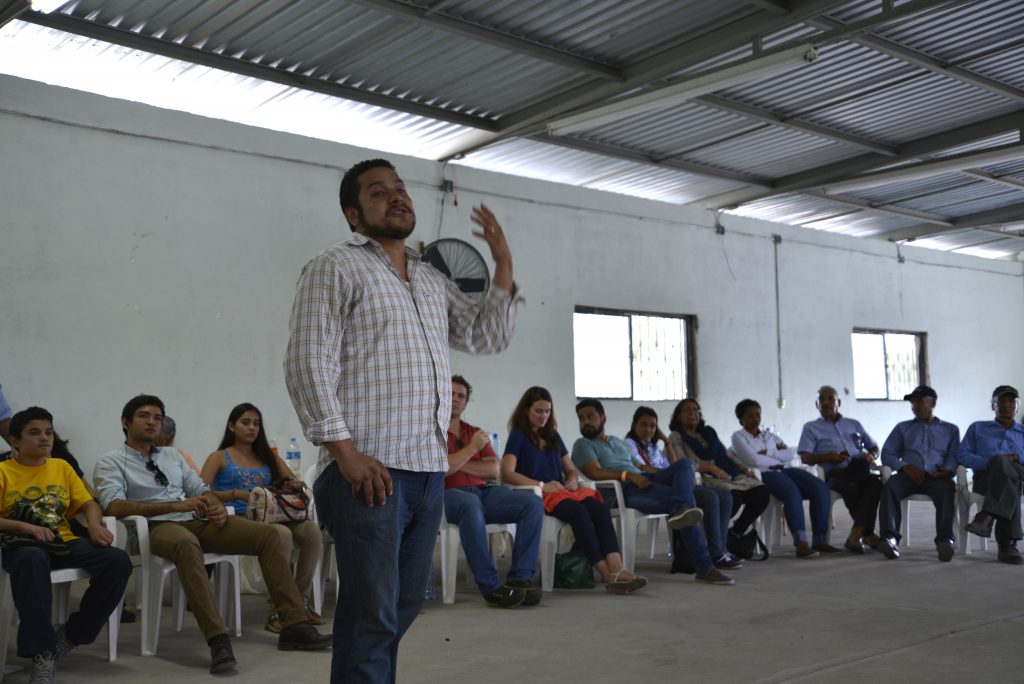
We were all impressed by the openness of the community to share their personal experiences with us, which speaks volumes about the quality of ProDESC’s community engagement work. During our visit it became clear how important it was for community members to hear from lawyers working with communities facing similar problems in different parts of the world. Community leaders explained that it encouraged them to continue their long and difficult struggle. ProDESC also believes that visits like ours help to raise the community’s profile and serve as an additional measure of protection as they face pressures from governments and transnational corporations.
‘It was an amazing space for us as human rights lawyers that gave us a possibility to keep believing that our work is worth it.’
– Alejandra Ancheita, Founder and Executive Director of ProDESC, Mexico
ProDESC also organised for us to meet with indigenous women leaders and human rights defenders from around Latin America. They shared their struggles in challenging corporations to protect their lands and communities, explaining how they are often labelled ‘anti-mining terrorists’ and stigmatised by corporate officials, by the state and in the media. Patriarchal structures further contribute to the difficulties they encounter, which reaffirmed the importance of recognising and addressing the additional challenges women human rights defenders face, and will inform future Women’s Working Group discussions.
Conversations from the convening facilitated collaboration between EarthRights International (ERI) and the Project on Organizing, Development, Education, and Research (PODER) on a case against Southern Copper in US courts for the contamination of rivers, and the impact on communities, in northern Mexico. The exchange also resulted in lawyers Alejandra Ancheita and Carolijn Terwindt writing an article on genuine transnational collaboration between Global South and Global North in holding corporations to account, as well as ongoing connection and information-sharing between our partners working on this issue. We hope to be able to support more comparative conversations like these to facilitate collaboration across jurisdictions within the Bertha network and develop best practice approaches to achieving accountability in the extractives industry.
In another educational exchange last July, our South African partner organisations – including Legal Resources Centre (LRC), the Centre for Applied Legal Studies (CALS), Equal Education Law Centre (EELC), and the Socio-Economic Rights Institute of South Africa (SERI) — held an educational exchange for all Bertha Fellows on the shrinking space for civil society in South Africa. Fellows were encouraged to actively participate by presenting the work of their organisations and were addressed by eminent South African activists and lawyers on a wide range of subjects, including the potential rise of the security state and its implications for free speech, freedom of association and protest and the rule of law. Held in Johannesburg to coincide with the annual Public Interest Law Gathering, the exchange allowed Bertha Fellows from different organisations to network and interact with each other, as well as the broader public interest law community, and develop shared strategies of resistance. Their report back explained the value of the opportunity to host the event:
‘It is not often that Fellows from different organisations have the space to spend time together and engage on both a professional and social level. A convening of this nature is valuable and inspiring for a new generation of public interest lawyers.’
So successful was the event in developing a sense of cohort among Bertha Fellows in South Africa, we are supporting another similar event next month on the subject “Defining the role and function of a social justice lawyer in 2016”, with particular focus on transformation of the legal profession. This year’s event will also include Bertha Fellow alumni to encourage inter-generational exchange between different cohorts of Bertha fellows, which we hope will deepen relationships and strengthen networks for their future careers together in the public interest sector.
Thematic educational exchanges like these have proved to be incredibly helpful to our partner organisations, eliciting a rich range of information about, and expertise in, using law creatively to better serve communities. They have also helped our partners develop relationships to coordinate the cross-jurisdictional litigation strategies required of many systemic human rights problems today. Another upcoming exchange in Berlin will discuss the legal and political strategies involved in transnational pesticide litigation to learn from work between India and Europe and develop best practices for future cases.
It was also exciting to see, through each of these exchanges, how the identity of the Bertha Justice Initiative as a network of movement lawyers has grown and developed since its inception in 2012.
‘Bertha Foundation is creating a new movement of social justice lawyers and I think that is the most important input that it has given to lawyers and to the world.’
– Alejandra Ancheita, Founder and Executive Director of ProDESC, Mexico
We are privileged to work with such an exciting network of lawyers and intend to continue to facilitate more in-person exchanges for Bertha Fellows and lawyers, affected communities and community organisers to increase the impact of our work together.
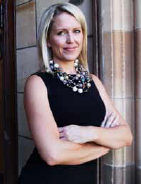 Jennifer Robinson, Director of Legal Advocacy, Bertha Foundation
Jennifer Robinson, Director of Legal Advocacy, Bertha Foundation
Follow Bertha Justice Initiative on Twitter @Be_Just_
Follow Jen Robinson on Twitter @suigenerisjen
Article Tags: Bertha Fellows / CALS / Cross-Jurisdiction / ECCHR / Educational Exchange / EELC / ERI / International Human Rights / LRC / Mexico / movement lawyering / ProDESC / SERI / South Africa / women lawyers